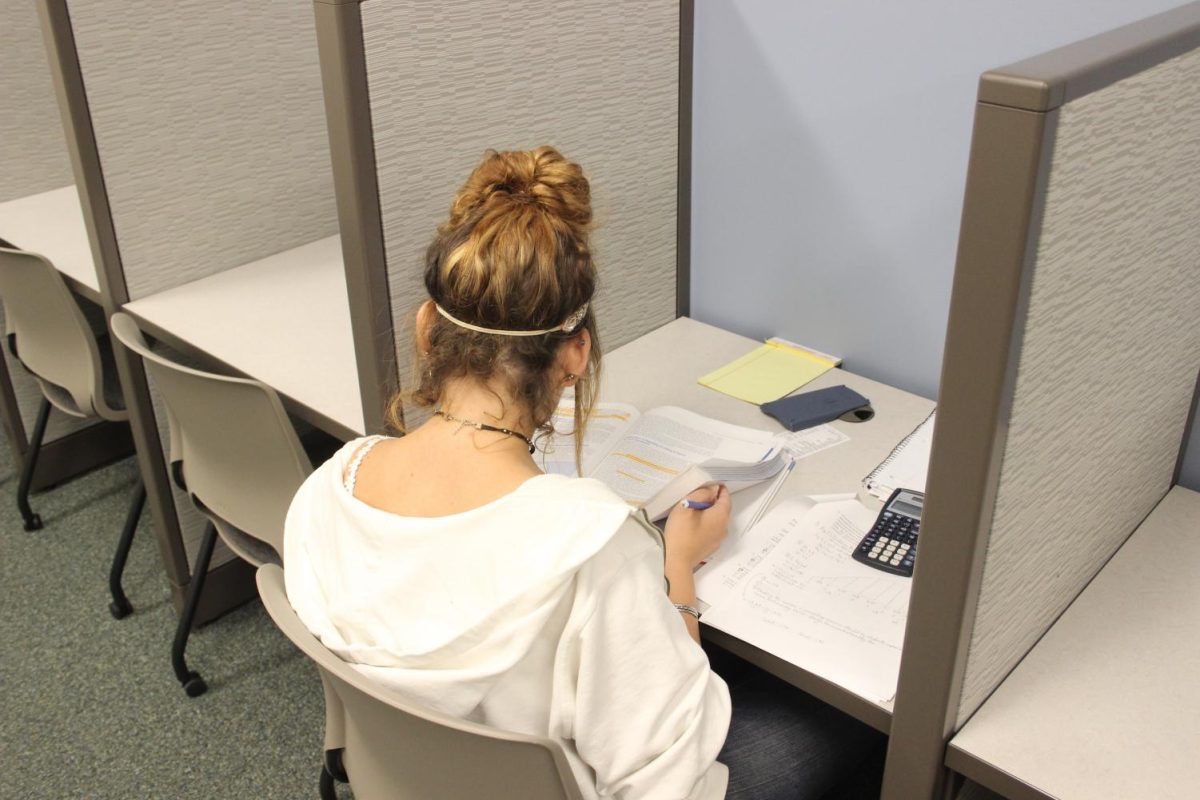Students encouraged to take advantage of disability services on campus
A Disability Support Programs and Services student takes a test in a testing accommodation room in the DSPS office on Oct. 18.
The Disability Support Programs and Services here at Cosumnes River College are here to assist students with disabilities. Whether it be a physical, learning, or psychological disability, the DSPS office is here to help.
The goal of the DSPS office is to help students with disabilities through “counseling, support services and academic accommodations that are provided to students who are eligible for the program,” according to the DSPS website.
“DSPS is an office in all community colleges,” said Yolanda Garcia Gomez, a counselor for DSPS. “We get funding from the state that allows us to make sure that we meet equal access for students with disabilities.”
“The eligibility requirements for the program require the student to have verification of disability through documentation; for example, a doctor’s note, or anything that will help us to determine that you have had a history of being served as an individual with a disability,”said Gomez.
Once the student’s disabilities are assessed, the student will then be accommodated with the necessary tools or services needed to help the student in their classes, according to the DSPS website.
“When it comes to the exchange of information, it is making adjustments on how they receive or give information,” said Learning Disability Specialist and DSPS Counselor Scott Hamilton.
“The program provides students with services such as notetakers if they don’t process lectures quickly enough, or if they don’t process auditory information well enough, in order to give them the chance to receive the same information as everyone else”, said Hamilton.
Some of other services that are provided to students participating in the program include alternate media.
Examples of alternate media include textbooks converted into braille and audio and larger fonts for students with visual and auditory impairments, according to the DSPS website.
Other services offered are academic advising, adaptive physical education classes and adaptive technology, which are there to make the college experience more accessible for disabled students, according to the DSPS website.
Students in the DSPS program also receive help from their professors in order to make the learning experience more accessible.
“We receive a sheet on each student that has an accommodation, and so we follow the information like a recipe for the student’s success,” said English Professor Heather Hutcheson.
Students with disabilities are encouraged to take advantage of the resources provided by the program.
“Any student that taps into the resources that they need, and they understand how they’re going to be helping them, then their success is already improved, just by acknowledging their need for assistance,” said Hutcheson.
Vidak Grubac, a 25-year-old radio, television and film production major, said that he was offered helpful student services through DSPS.
“I think the services are awesome,” said Grubac. “I am an international student from Montenegro, Europe and the fact is back home, I did not have the services that are offered here, like test proctoring, people reading to me due to me being visually impaired. It feels good to know someone has your back.”
Grubac had encouraging words for students afraid to get help for their disability.
“There is no reason to be afraid,” said Grubac. “What I like about DSPS is you’re not treated differently. I will have the same treatment as any other person taking a regular test. I will just have it accommodated.”
For more information on DSPS and its services, visit the DSPS office in BS-104. Students with disabilities are encouraged to apply.

